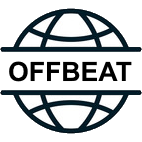

Surely someone’s had the idea of doing the re-encoding client-side before uploading. That seems to me the obvious solution, especially since online creators already generally have beefy hardware for video editing.


Surely someone’s had the idea of doing the re-encoding client-side before uploading. That seems to me the obvious solution, especially since online creators already generally have beefy hardware for video editing.
I mean, the game ruthlessly mocks them in satirical fashion, but fascists have always had poor media literacy so they could still like it similarly to how conservatives thought the Colbert Report was serious.


The Trump administration literally sold merch at the front gate of one such camp in Florida. Old prisons are being reopened and new ones are being built to hold all the new ICE detainees, and they throw them all together in a cell with deportation papers in the middle of the room hoping they’ll give up and sign to be willingly deported. ICE now has massive deportation quotas that they’re being pushed to meet.
The above doesn’t even scrape the iceberg of everything that’s been happening. Your confident ignorance betrays your stupidity.


Because if Batman is around, there’s probably a camera too.


You have to remember that a lot of people weren’t working or getting paid either, so even though their expenses went down many were still struggling.


I use Actual and it’s very barebones, no BS, does one thing and does it well. Great if that’s what you’re looking for.
You don’t have to believe me, I just found it amusing. I remember seeing it and I can also see the hammer and sickle in this one is sharper than the rest of the image, meaning it was pasted over something. Don’t know if OP edited it or found it already edited, but I know the original is out there somewhere.
I swear I saw the original version of this meme with the anarchy symbol instead of the hammer and sickle, though I can’t find it anymore. MLs don’t do anarchist erasure challenge: impossible.
SMH


It won’t be great news after the civil war ends up being between fascist and fascister.
The clip you linked to didn’t clarify any of that… he just said it was something “no one’s ever done or heard of.” But it has been done - first by some movie stars in a film about Rome and then by fascists. And, well, I’ve heard of it.
The “Roman salute” isn’t real, it’s from a movie. The fascists - who believed the Roman salute was a real thing because they lack critical thinking - copied it. It is 90 years old, not 2000.
Gen Z is more reactionary than millennials, and that’s because we’re more fucked. Fascism provides an outlet and gives direction and purpose to the general discontent and resentment harbored by young people today, same as it ever was. Gen Z appears more right wing because more Gen Z can see the status quo isn’t working for them, and in the absence / suppression of the populist left people turn to the populist right.


“Mutual aid” is not trademarked and if anyone attempts it I’m going postal.


I don’t think Zohran is as committed to the democratic party as you think. He is a member of the DSA and ran as part of their party surrogate strategy. I think he’s playing nice with the NYPD for the same reason that Mexican politicians have to play nice with the cartels. He knows NYC political history and has seen what happens when you face them head-on.


You’re talking as if the label has no real meaning and is just an accessory. Consider the possibility Zohran calls himself a Democratic Socialist because that’s what he actually believes in. It’s not just branding, it’s a statement of intent. His platform may just be social democratic, but his long term vision does seem to be full socialism.


I’m printing this and hanging it on my wall.


Fuck off Nazi, you carry the same hate. People are people and genocide is genocide.


That is a horribly designed butt plug.
It’s a bad argument anyway, since street-blocking protest crowds almost always part to allow an ambulance through. If an ambulance is stopped, it’s usually the cops blocking it.